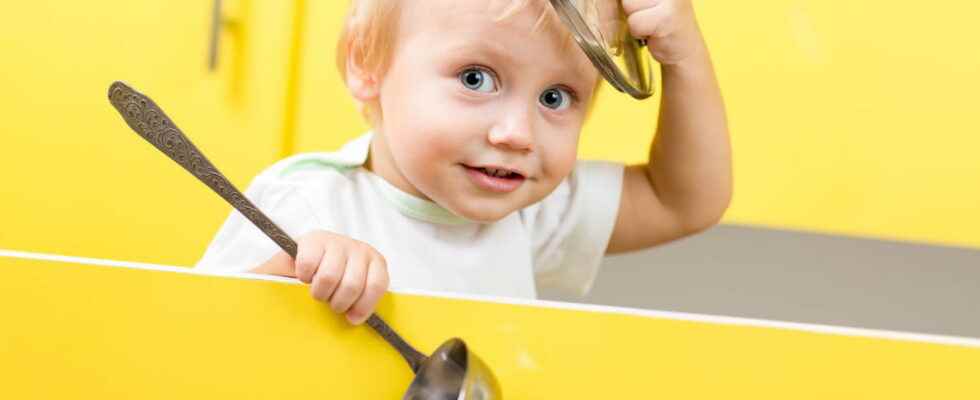Does your child keep forgetting his things, breaking everything in his path and falling? If he’s forgetful and clumsy, here are 5 tips to hold him accountable and help him focus.
You thought Pierre Richard was just an actor playing the character of François Perrin in the movie La Chèvre… until your child showed up? Ever since he was little, he’s come home without his scarf, forgets his satchel and coat in class, and could almost go to school in his pajamas or slippers if you didn’t call him to order. So much so that the mistress summons you to tell you about her current lack of concentration… And that’s not all! In addition to being in the moonyour child is also very clumsy. With him, the toys do not last long, he breaks everything in his path, bumps and falls constantly… If at the beginning, his little inattentions made you laugh, they have, on a daily basis, the gift of irritating you, sometimes even to worry…
1 – Put into perspective
Admittedly, you’re a little tired of cleaning up after your child when he’s aiming the wrong way with the shower head, you’re tired of buying him clothes because he systematically forgets them during school outings, and you’ve never enough bandages to treat his little sores… Nevertheless, tell yourself that there is, fortunately, never anything serious.
2 – Avoid making him feel guilty
Remember thata child never “on purpose” be clumsy and airheaded. There is therefore no point in scolding him every time he seems to have done damage, unlike nonsense, where the child often measures the consequences before acting.
3 – Teach him to be more focused
If he’s dizzy, he’s likely to be distracted by what’s around him (make sure the television isn’t on, for example, when you’re eating). In the street, teach him to watch where he is stepping, to take stock before leaving a place to check that he has not forgotten his things… Help him to pay more attention to what he does concentrating. He wants to help himself to a drink like a grown-up? Let him do it by teaching him to hold the bottle properly with both hands. … Appreciate him as soon as possible, and show him that by paying attention to his actions, we always achieve our goals.
4 – Let him fix his mistakes
Has your child just broken the toy you just gave him? Don’t run to him and buy another one to replace him. He just spilled his soup after making a sudden wave of his hand? Ask him to clean up before using it again, rather than picking up the sponge yourself. Thus, he will certainly be more careful next time, and at the same time become the king of cleanliness!
5 – Trust him
The clumsiness sometimes comes from hesitant gestures, and therefore from a lack of self-confidence. When you ask him to do something, start by explaining to him how to proceed, and avoid putting pressure on him, or making him understand that you would do it better yourself… “because with him, we risk “catastrophe “!”. On the contrary, make him understand that to err is human, and that we learn from our failures. This is how he will gain his own experience, and avoid making the same mistakes twice.
Should we be worried?
It is generally a way of being. Some children have their heads on their shoulders, others are rather “in the clouds”. In addition, your child is in full development, he is growing and learning. But if in doubt and if your child is clumsy in all circumstances and on a daily basis, do not hesitate to talk to your pediatrician about it, explaining to him when these funny situations occur (in the evening when he is tired, in the morning alarm clock, or in the middle of the day?). Your doctor will be able to take stock of his psychomotor development, assess the risk of dyspraxia, check their eyesight, and refer you to a specialist if necessary. In the meantime, try to anticipate his actions. And finally, you will certainly end up getting used to it, and above all, by becoming more patient!
Is your child very clumsy? Can’t perform simple gestures with precision? Does he lack concentration and balance? Produced with the help of a speech therapist and a psychologist specializing in the management of dyspraxia, these 50 sheets will give you the keys to detecting the signs of dyspraxia and effectively helping your child plan and coordinate his movements correctly. . Helping her clumsy child by Delphine de Hemptinne and Jehanne Mignot, Editions DeBoeck Supérieur.
